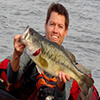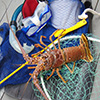It is important for licensed fishermen to take advantage of various resources and helpful materials that may be available to them, in order to become fully informed about the rules for fishing in Texas.
Fishing Classes
With the Internet becoming most people’s main source of education for learning a new skill, you may think there are not as many choices for face-to-face instruction regarding fishing. However, Texas has a number of options for formal instruction in the different fishing techniques.
The Texas Parks & Wildlife Department hosts numerous regularly scheduled fishing instruction courses, including the “Fishing with a Ranger” program, Fly Fishing 101 course, and the “Go Fish! Learn to Fish” program available for both kids and adults. Most courses are divided up by specific types of fishing – like saltwater fishing versus freshwater fishing – or specific tasks within the process of fishing. TPWD also hosts numerous fishing programs for individuals and families, such as their Neighborhood Fishin’ program.
In addition, many private companies throughout the state offer courses for everything from rigging your tackle to casting a line to fly tying. Check out your local bait and tackle shops, outdoor sport retailers, and fishing clubs throughout the state for more education options.
Fishing Safety
Much of the safety regulations regarding fishing in Texas surround the use of boats and being out on the water. However, there are other dangers concerning angling in Texas, such as fish bites and hook impalements, while heat stroke or hypothermia are also concerns. Most of these incidents can be prevented if you follow the rules outlined by the Texas Parks and Wildlife Department. Keep this below list of fishing tips in mind next time you head out on the water.
Tips and Rules for Safe Fishing:
- Texas state law requires all boats to equip at least one wearable, US Coast Guard approved life jacket per passenger on board. Boats that are 16 feet or longer also require a flotation device that can be thrown.
- All passengers on board who are less than 13 years of age must wear a flotation device while the boat is moving.
- It is illegal to operate a boat while intoxicated.
- Always remember to check the weather and have a “float plan” available to you and a person who will not be on the boat before you head out on the water.
- Secure your gear properly and distribute it to passengers accordingly, being careful not to overload the boat.
- When moving, make sure to distribute weight evenly to keep the boat from capsizing or sinking.
- Remain seated while the boat is moving to avoid falling overboard.
- Do not anchor from the stern of your boat.
Laws & Regulations
There are a few necessary regulations regarding fishing in Texas that you should keep in mind before you take your boat out on the water. You are exempt from the fishing license requirements if you are less than 17 years of age, were born before New Year’s Day of 1931, are fishing in a Texas State Park, or are mentally disabled and are engaged in recreational fishing with a licensed supervisor.
You are exempt from the fishing license requirements if you are less than 17 years of age, you were born before New Year’s Day of 1931, you are fishing in a Texas State Park, or if you are mentally disabled and are engaged in recreational fishing with a licensed supervisor.
Fishing licenses are also not required if you are fishing in lakes or ponds that are on private land.
Prohibited Actions
There are a few acts that are prohibited by state laws and regulations regarding fishing in Texas public waters:
- It is a state violation to transport any harmful exotic aquatic animals or plants to land.
- It is a violation to use your boat to herd fish for the purpose of catching them in bulk.
- It is a state violation to leave edible or bait fish taken out of public waters to die without using them for consumption or bait.




